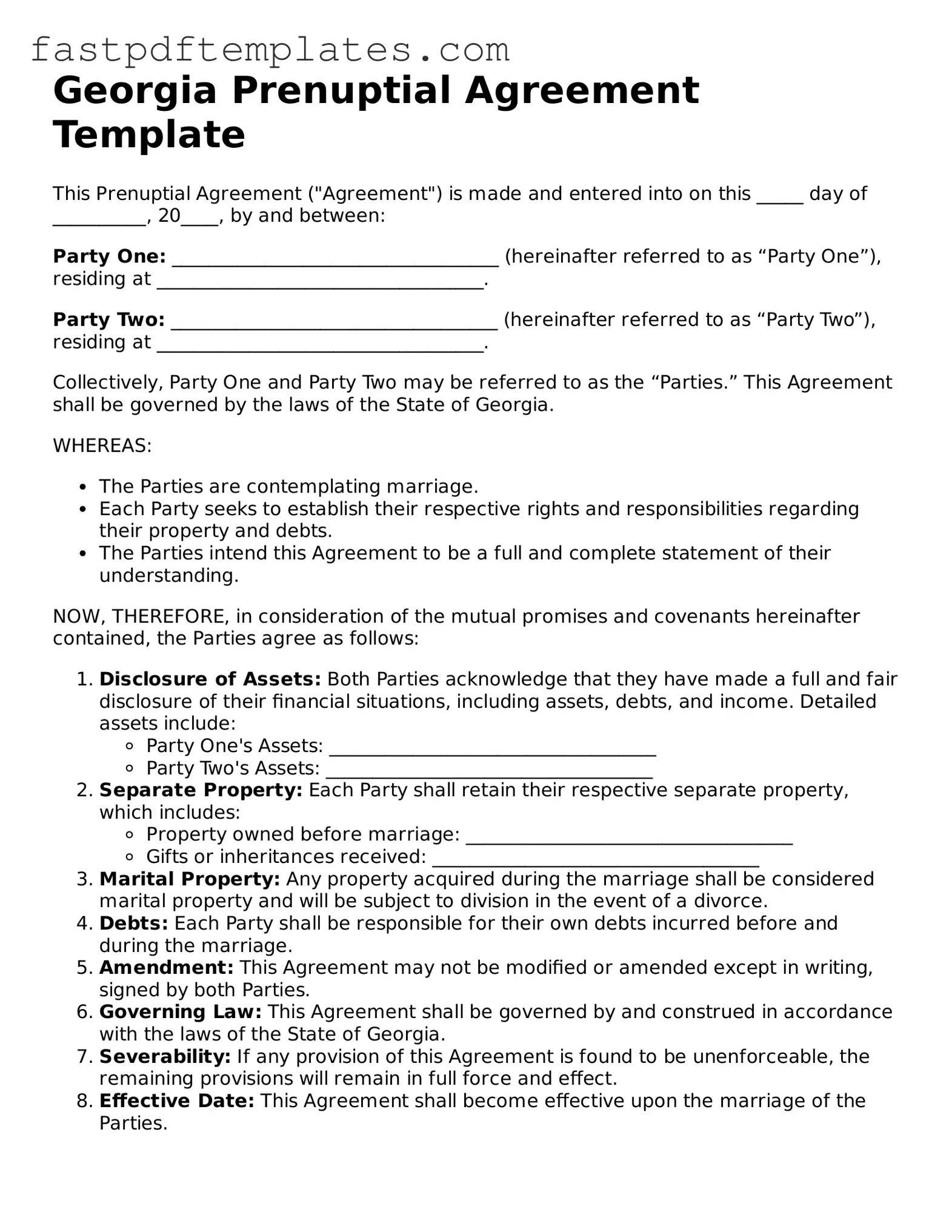Georgia Prenuptial Agreement Template
This Prenuptial Agreement ("Agreement") is made and entered into on this _____ day of __________, 20____, by and between:
Party One: ___________________________________ (hereinafter referred to as “Party One”), residing at ___________________________________.
Party Two: ___________________________________ (hereinafter referred to as “Party Two”), residing at ___________________________________.
Collectively, Party One and Party Two may be referred to as the “Parties.” This Agreement shall be governed by the laws of the State of Georgia.
WHEREAS:
- The Parties are contemplating marriage.
- Each Party seeks to establish their respective rights and responsibilities regarding their property and debts.
- The Parties intend this Agreement to be a full and complete statement of their understanding.
NOW, THEREFORE, in consideration of the mutual promises and covenants hereinafter contained, the Parties agree as follows:
- Disclosure of Assets: Both Parties acknowledge that they have made a full and fair disclosure of their financial situations, including assets, debts, and income. Detailed assets include:
- Party One's Assets: ___________________________________
- Party Two's Assets: ___________________________________
- Separate Property: Each Party shall retain their respective separate property, which includes:
- Property owned before marriage: ___________________________________
- Gifts or inheritances received: ___________________________________
- Marital Property: Any property acquired during the marriage shall be considered marital property and will be subject to division in the event of a divorce.
- Debts: Each Party shall be responsible for their own debts incurred before and during the marriage.
- Amendment: This Agreement may not be modified or amended except in writing, signed by both Parties.
- Governing Law: This Agreement shall be governed by and construed in accordance with the laws of the State of Georgia.
- Severability: If any provision of this Agreement is found to be unenforceable, the remaining provisions will remain in full force and effect.
- Effective Date: This Agreement shall become effective upon the marriage of the Parties.
IN WITNESS WHEREOF, the Parties have executed this Prenuptial Agreement as of the day and year first above written.
Party One Signature: _____________________________ Date: ____________
Party Two Signature: _____________________________ Date: ____________
Witness Signature: _____________________________ Date: ____________
Witness Signature: _____________________________ Date: ____________

